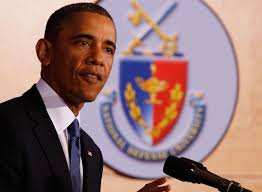 I was wandering through the pages of a volume on the approach to war in August 1914. And the reason. We are now closing in on 100 years since the outbreak of World War I.
I was wandering through the pages of a volume on the approach to war in August 1914. And the reason. We are now closing in on 100 years since the outbreak of World War I.
A significant number of historians and international relations specialists are casting their gaze back to this conflict that opens major war in the 20th century. My particular focus in examining these diplomatic volumes was an effort to cast a critical eye on the diplomacy of the period – or more precisely really the complex great power behavior – what was styled after the War as the ‘old diplomacy’. This diplomatic behavior emerged, so it seems, with Germany’s Bismarck and his diplomatic contemporaries in the early 1870s and continued through the alliances and alignments of this largely European diplomatic period that continued right up to its fateful end in August 1914.
Now I look back and am struck by intricacies and balancing in this classical period of balance of power diplomacy. My old LSE International History mentor James Joll, better than most, captured the complexity of this diplomacy in his co-edited volume with Gordon Martell:
The theory, if that is not too grand a term, by which contemporaries justified the alliance system was that it would maintain the balance of power. This phrase, which had been common in diplomatic language since the eighteenth century, could be interpreted both as an objective assessment of the actual military and economic strength of the powers and as a subjective evaluation by statesmen of where their own national interest lay. The idea was expressed by Sir Eyre Crowe of the British Foreign Office in a famous memorandum of 1907: “the only check on the abuse of political predominance has always consisted in the opposition of an equally formidable rival, or of a combination of several countries forming leagues of defence. The equilibrium established by such groupings of forces is technically known as the balance of power.” … Many statesmen and diplomats believed that the maintenance of the balance of power would itself prevent war by deterring an aggressor, either directly or by providing machinery by which, as Bismarck himself believed, one power could control its allies and stop them doing anything to upset the balance.
Now I am not suggesting that the classic balance of power diplomacy is what is needed today. I am not looking for something equivalent to a twenty-first century balance of power diplomacy, but the current diplomatic void is all too apparent. And I say that in reflecting primarily on US diplomatic leadership, or the absence thereof. So whether I am looking at global summitry, or Syria, Afghanistan or Pakistan, or the Asian pivot, I keep looking for US diplomatic leadership but find it largely missing.
Now that might be acceptable if others were stepping up to the plate – whether the large emerging market states, or others but there is faint evidence of that either. US leaders are quick to confirm that there is no substitute for US leadership – but the means and US efforts seem pretty hard to discern unless we are talking about US military actions.
I raise this in the context of having just read President Obama’s National Defense University speech on counterterrorism delivered on May 23, 2013. I also acknowledge what may prove to be rather too optimistic presumptions on my part in early posts (“Determining Who’s on First“) where I mused on the US Asian pivot and in particular then Secretary Clinton’s assertion that this pivot was more about economic diplomacy. At the time I pressed the hope that we were likely to see a “more nuanced and sophisticated foreign policy”. As I said then:
US policy has been so militarized over the last decades and in particular by the initiatives in Iraq and Afghanistan that many officials fail to recognize today the critical nature of economic diplomacy.
Whether US leadership does, or can do anything about it, is unclear. The explosion of the national security state following 9/11 may have been slowed by Obama rethinking over counterterrorism strategy, but diplomacy remains the “90 pound weakling” to America’s military muscle-bound leadership.
The President acknowledges the insubstantial provision of just one foreign policy – foreign aid:
Moreover, foreign assistance is a tiny fraction of what we spend fighting wars that our assistance might ultimately prevent. For what we spent in a month in Iraq at the height of the war, we could be training security forces in Libya, maintaining peace agreements between Israel and its neighbors, feeding the hungry in Yemen, building schools in Pakistan, and creating reservoirs of goodwill that marginalize extremists. That has to be part of our strategy.
Well Obama is right but what is the likelihood of that? And as for greater diplomatic engagement, here is the sum total of the President’s thinking:
Targeted action against terrorists, effective partnerships, diplomatic engagement and assistance – through such a comprehensive strategy we can significantly reduce the chances of large-scale attacks on the the homeland and mitigate threats to American overseas.
There has been a fair discussion of the diffusion of power away from the United States and the rise of new leadership – creating the conditions for a “G-Zero World” according to Ian Bremmer or “No One’s World” by Charlie Kupchan. But I’d say it’s far less the structural changes but the inordinate US focus on war and counterterrorism that is leaving international politics without leadership.
There is clearly a strategic gap. Let’s see if Obama can shift to a more nimble strategic leadership. The first test may well come when Obama sits down with China’s new President Xi Jinping in California at the Sunnylands Estate on June 7th and 8th. Let’s look closely.
Image Credit: NDU.edu

